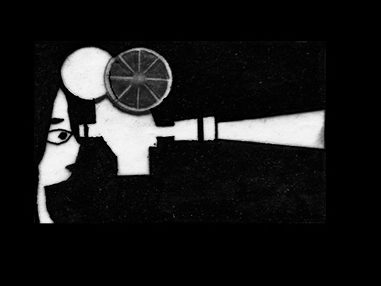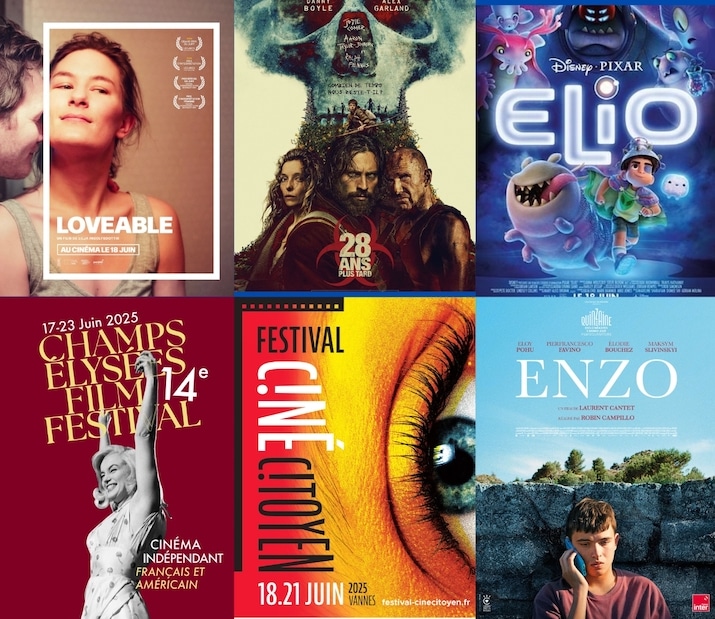In 2025, the body in cinema and in series becomes a central storytelling motif. Contaminated bodies (28 Years Later), desiring bodies (Enzo), frozen adolescent bodies (We Were Liars). These works restore a tangible presence to the body—a presence that is political, intimate, and vulnerable.
From June 18, the body in cinema takes center stage in narratives
🎥 Elio – Pixar: extraterrestrial body
Release: June 18, 2025 – Director: Madeline Sharafian
This is not your typical Pixar. In Elio, space is merely a mirror—a cosmic reflection of a far more terrestrial disturbance: that of a lonely, gentle, invisible boy suddenly propelled into the role of “ambassador of humanity.” This role reversal—where the weak child becomes a figure of authority—deeply questions the concept of assigned bodies: to a family, a gender, a planet.
Madeline Sharafian delivers a film where the organic and floating animation style mirrors the protagonist’s hesitations. His too-soft, too-gentle, too-different body gradually becomes the vessel for a new kind of power: the power to say no, to assert oneself, to exist. Science fiction at Pixar is no longer escapism; it becomes a sensory rite of passage, at child’s eye level.
🎯 Why watch it? For that rare moment when an American animated film dares to turn gentleness into a tool of resistance.
🎬 Avignon – Johann Dionnet: body and theatre, between mimicry and sincerity
Release: June 18, 2025 – Director: Johann Dionnet
Johann Dionnet, coming from stage and short films, delivers Avignon, a light romantic comedy infused with deeper stakes: the actor’s body as a space of social transformation. Baptiste Lecaplain plays Stéphane, a struggling actor who shows up at the Avignon Festival pretending to star in Le Cid to impress. This lie unveils the tension between popular theatre and elitist art, captured by a handheld camera that renders actors’ bodies tangible and vulnerable.
The film, awarded at Alpe d’Huez (Grand Prize, Jury Favorite, Canal+), avoids cold portrayal or cheap satire: it’s first and foremost an embodied tribute, where physical fragility—strained voices, exhaustion, rivalries—becomes narrative material. Still, the romantic comedy part lacks surprises, and some misunderstandings feel forced. But what truly captivates is the troupe’s energy, the simplicity of dialogue, and the sincere way the stage is filmed as a shared adventure.
🎯 Why watch it? Because Avignon is a love letter to the actor’s body—a story where truth emerges through performance: imperfect, flawed, but always alive—and where comedy becomes a collective gesture.
🎥 28 Years Later – Danny Boyle: infected bodies, a devastated society
Release: June 18, 2025 – Director: Danny Boyle
Some films never heal. 28 Days Later was one of them. 28 Years Later is its long-awaited, furious, and necessarily uneven sequel. But Danny Boyle returns with a clear mission: to place the body in crisis back at the heart of the screen.
In this ravaged England, everything vibrates, shakes, and erupts. Boyle’s style—shaky cam, dirty lighting, jarring cuts—reconstructs an aesthetic of organic chaos. Zombies are no longer creatures but symptoms of a sick world. The fear is not in the monster but in the gaze it reflects back at you.
At times, the film struggles to renew its stakes. But it succeeds in one rare feat: making the viewer physically uneasy, reminding us that horror is, above all, a sensation.
🎯 Why watch it? For its punk energy, rejection of comfort, and its ability to turn the body into flammable material.
🎥 Enzo – Robin Campillo: social body, desiring body
Release: June 18, 2025 – Director: Robin Campillo
Campillo captures a teenager in rupture: neither hero nor victim. Simply a boy—barely self-defined, yet already scrutinized, projected upon, judged.
Everything here is political. School, gazes, body language. But the film’s miracle is its refusal to impose a message. It lets the bodies speak: silences, avoided gestures, broken impulses. Enzo becomes a mirror to an adult world unable to face its own violence.
The direction is discreet, but strikingly precise. Static shots tremble with emotion. The film could have been militant; instead, it is something more powerful: it is incarnate.
🎯 Why watch it? For its rare ability to make cinema an act of deep listening.
Peacock – Bernhard Wenger
A gentle fable about social imposture and the terror of being oneself. The setup might seem artificial, but Wenger pushes it to the absurd, into a literal and symbolic baring.
Loveable – Lilja Ingolfsdottir
An intimate drama driven by a rigorous, almost clinical direction. The domestic space becomes a tension zone where every object, every silence narrates the erosion of a woman’s identity.
📺 Series to Watch
📺 We Were Liars – Prime Video: Bodies as Facades, Intimacy in Ruins
Date: June 18, 2025 – Creators: Julie Plec & Carina Adly MacKenzie
At first glance, yet another spoiled-teen series set in a bourgeois villa on a summer island. But We Were Liars, adapted from E. Lockhart’s cult novel, offers a biting social critique beneath the surface: behind the smooth bodies and fixed smiles lie silences, traumas, and mechanisms of erasure.
Here, the body becomes a social interface, a deceptive surface. Told through flashbacks and tonal shifts, the series gradually dismantles this illusion. The adolescent body is portrayed as a tension point between expected image and lived emotion — a fracture zone.
The direction remains sleek, perhaps too polished, but the script weaves a genuine unease: that of a generation trapped between rebellion and toxic legacy.
🎯 Why watch it? For its clarity in portraying the muted violence of the privileged and its disenchanted look at family rituals.
📺 The Truth – Canal+ / Polar+ (Israel)
Creators: Dror Misha’ani, Idit Avrahami, Aurit Zamir & Daphna Levin
Based on a notorious real case (the Tair Rada affair), The Truth puts the victim’s body — and then the body under judgment — at the center of its story. The tension doesn’t stem from a crime plot, but from the exposed intensity of flesh confronting the judicial institution. All the chThe father, the detective, the suspect: all bear intimate traces of the tragedy, visible in a glance, a pause. The investigation becomes emotional archaeology. It’s a televised poem about the body as violated truth.
📺 Pernille – Netflix (Season 5 Now Streaming)
Creator: Henriette Steenstrup – Cast: Henriette Steenstrup, Nils Ole Oftebro
Pernille doesn’t stray from Nordic TV’s gently heavy tradition: here, it’s the overburdened body — family duties, social norms — that commands attention. Social worker, single mother, adulterous daughter: she is an accumulation of bodily obligations, to the point of exhaustion. Season 5 deepens the spiral, with some viewers admitting to feeling “emotional fatigue” in the face of her constant sacrifice. A rare series where empathy edges into discomfort — a Nordic realist marvel.
📺 Querer – Arte / Movistar+
Director: Alauda Ruiz de Azúa – Actress: Nagore Aranburu
With Querer, the body becomes a battlefield — legal and intimate. Miren, betrayed by thirty years of marriage, files a complaint for repeated marital rape. The body — bruised, lied about — becomes both evidence and stake. Arte airs it following its Grand Prize win at Séries Mania.
Alauda Ruiz de Azúa refrains from overplaying the drama: she films the trauma’s temporality, the slow undulation of emotions, the judicial process. This series transcends denunciation: it becomes a chronicle of the body as a political entity.
🎞️ Festivals: Filming the Body in 2025
Thomas Bidegain, jury president, sets a clear tone: a narrative cinema that is committed but never didactic. Having written for Audiard and Jacques Fieschi, he knows how a gaze can capture an era. This young festival proves politics can be conveyed through the sensory, without sacrificing artistic rigor.
🎟️ Champs-Élysées Film Festival (CEFF) – Paris (June 18–25, 2025)
Geographically opposite but politically aligned, the Champs-Élysées Film Festival asserts a feminist, independent, transgenerational vision.
Here, bodies on screen are queer, fluid, migrant, transformed. Films like Emma Seligman’s Bottoms or Celine Song’s Materialists subvert the codes of rom-coms and coming-of-age stories to challenge identity norms. Far from caricatured activism, these narratives are funny, visually powerful, and radically embodied.
The festival doesn’t theorize. It shows. And that is enough to spark political reflection. Through its curation, CEFF confirms the body as the battleground of contemporary imagination.


